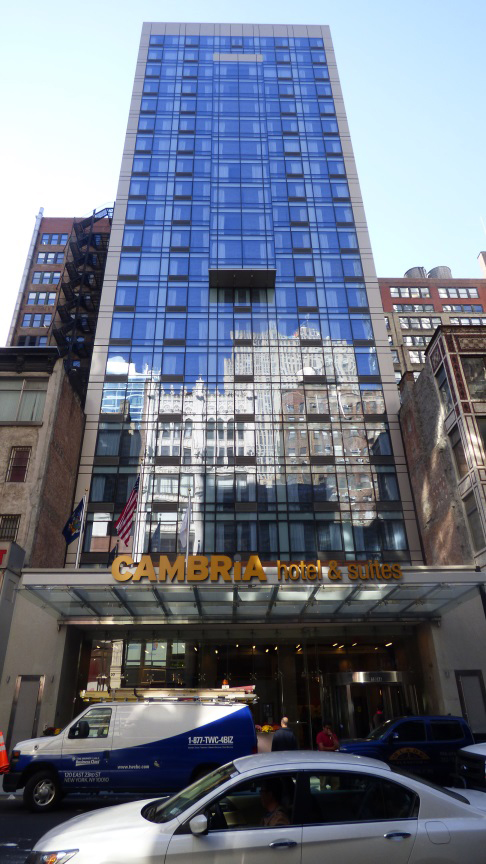News:
Green Buildings
Posted: December 23, 2013
Three green resolutions for 2014
Buildings have an enormous impact on the environment. Basic building operations account for over 38% of America's total carbon dioxide emissions, everyday over 19,000 tons of building materials are thrown out in N.Y.C., and the largest source of U.S. industrial air pollution is traditional electric production. So as 2014 approaches, the new year calls for new strategies and resolutions for everyone to become a little smarter, greener, and a whole lot more sustainable. Here are three ways applied to the real estate industry:
1. No matter how old your building might be, it's never too late to make it greener. Even a building that was not constructed with any kind of environmental protection in mind can become green by making the right renovations and equipment changes. Retrofitting a building can mean substantial savings on utility bills, as well as a greatly improved quality of life for its occupants. A simple energy retrofit could be swapping out a building's lighting system for one that requires less power. A more complex, or "deep" energy retrofit would look at every possible area of improvement, such as filling wall cavities with resilient insulation.
2. Choosing and changing to a renewable energy supplier is an easy resolution that will lower your dependence on fossil fuels, slow the production of smog and greenhouse gasses, and reduce the release of toxins into our air, water, and soil. Solar is the best-known renewable energy options available. Other forms of renewable energy include wind power, hydropower, geothermal (using the earth's heat), and fuels made from organic material, such as biodiesel. While not every form of renewable energy is currently available for individual use in every area, their popularity is steadily growing. Everyone can support renewable energy by purchasing Renewable Energy Certificates (RECs). For every unit of electricity created by renewable energy facilities one REC is generated. By purchasing RECs, you can still get your electricity through the grid like normal, but now you can say that your money went to fund the creation of electricity through renewable energy.
3. Deconstruction is an environmentally friendly alternative to demolition. Instead of reducing a building to rubble that just piles up in local landfills, trained crews carefully take apart a building piece by piece in order to salvage as many of the reusable materials and architectural elements as possible. The salvaged materials are then made available for sale and distribution to the public at reuse centers. Not only does deconstruction help the environment by reducing waste and the need for new resources, it is a way to preserve an area's architectural history. And it is also cost-effective - deconstructing a building instead of demolishing it can provide a tax write-off of thousands of dollars.
So know you know a little more, but not sure where to begin? Contact [email protected] to find out more about Rapid Realty NYC's network of Green Real Estate Service Partners, and we will get you on your way to a greener and more eco-conscious 2014.
Stephanie Barry is the chief sustainability officer of Rapid Realty NYC, Brooklyn, N.Y.
Tags:
Green Buildings
MORE FROM Green Buildings
IREON Insights: DURA Architectural Signage manufactures and delivers over one million signs
Long Island City, NY Since its founding in 1955, IREON member DURA Architectural Signage has proudly manufactured and delivered more than one million signs to clients across a wide range of industries. From architectural interior signage to large-scale exterior installations, their work can be seen in corporate

Quick Hits







.gif)

.gif)
.jpg)
.gif)